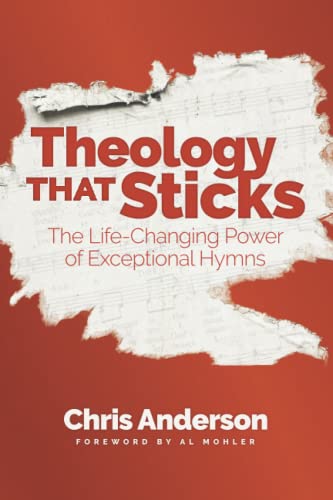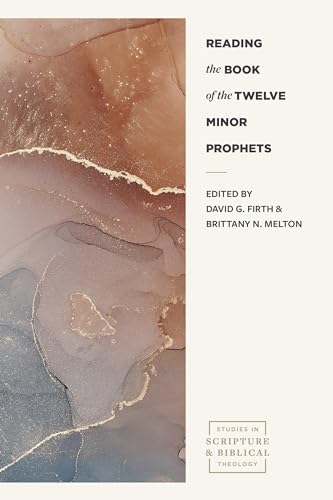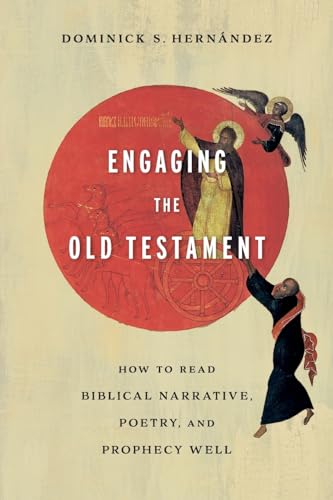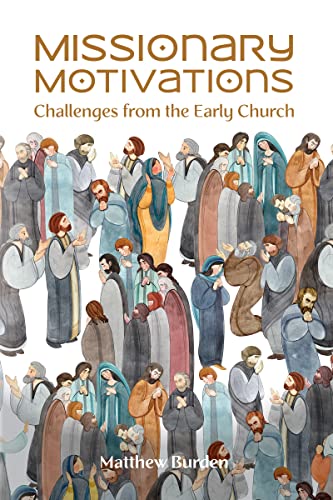Theology That Sticks: The Life-Changing Power of Exceptional Hymns
Written by Chris Anderson Reviewed By Philip G. PercivalOne of the many developments that has caused our engagement with Christian hymns and songs to change over recent decades is the demise of the hymn book. The hymn book in the pew was the one source of a congregation’s singing repertoire. It reflected not only its compiler’s editorial priorities but the doctrinal distinctives of a particular church, with as much angst involved in updating it as there was in deciding to adopt a new Bible translation, if not more!
For many churches today, however, the internet is their hymn book, and the task of curating the church’s song list sits in the hands of the church itself, meaning either the pastor, a committee, or the musicians. With this responsibility resting with those who may lack sufficient theological or musical expertise to make such decisions, Chris Anderson’s Theology That Sticks is a welcome tool for this vital task.
Anderson writes warmly and persuasively about singing as one of the most important things we do as churches, as families, and as Christians. “Our church wants to feast on the very best Christ-centered songs, regardless of their age or authors. And we’re doing this because we believe our church and its members will be the better for it” (p. 3).
The book is in two parts: the first explores what the Bible has to say about Christian singing; the second provides a guide to making intentional and objectively good song choices. It is, therefore, not so much a book about how to lead and accompany congregational singing as it is about what songs a church should be singing. In part 1, the author uses key texts from Colossians 3 and Ephesians 5 to argue that the songs we sing should be biblical, doctrinal, trinitarian, congregational, and unifying. Part 2 moves to the Psalms, where Anderson proposes we find the biblical model of a good song or hymn. These will be songs that are inspired, diverse, emotive, experiential, and beautiful.
Underlying his whole argument, however, is a doxological call to arms. “Because sacred music has such tremendous power, we need to use songs that are exceptional” (p. 14). He continues:
We need to sing great hymns because hymns teach people how to think about God. The songs you sing in church teach—for better or for worse. Some teach doctrinal truth. Some teach doctrinal error. Some teach that we value nostalgia. Some teach that we value tradition. (p. 14, emphasis original)
In short, Anderson argues that what we sing not only shows our theology but, more importantly, shapes our theology.
Rightly, he considers Paul’s key verses on why the church sings, particularly Colossians 3:16, and emphasizes that our singing is a ministry of the word. He contends that a revelation-and-response theme pervades all of our corporate worship:
>We read the Word in our public worship services.
We pray the Word in our public prayers.
We preach the Word in our sermons.
We support the Word with our offerings.
We visualize the Word with the two ordinances, baptism and the Lord’s Table.
We sing the Word with our psalms, hymns, and spiritual songs. (pp. 29–30)
All of our singing, therefore, should be about the Bible and from the Bible. “Colossians 3:16 describes a delightful, Word-filled cycle: We think on the Word, we speak the Word, and we sing the Word—causing us to think on the Word yet again!” (p. 31).
A helpful following section reminds us of the importance of the congregation in our singing:
To exalt elite performers over the congregation actually rolls back the Reformation. And yet, there is a trend in much of evangelicalism to turn the congregation back into an audience and to turn worshipers back into observers. The staging, atmosphere, complexity, and volume of the musical portions of many worship services are marginalizing the congregation. (p. 89)
However, there are other issues that detract from good congregational singing. Pastors themselves must take the lead in modeling participation and should teach on singing as an essential element of church life. Similarly, congregations should learn to value singing with an active engagement.
But returning to the main theme of choosing good songs, Anderson asks us to look to the book of Psalms:
As a hymnbook, the Psalms give the church songs to sing and pray; as a handbook, the Psalms teach the church how to think and feel. But I would add one more descriptor, as well. As a sketchbook, the Psalms point the church to Jesus Christ. (p. 122)
From here we are encouraged to consider singing songs that are not just biblical but that cover a breadth of doctrinal themes: confessions, songs that confront sin, laments, and songs that teach us to pray. “In order to serve the church a ‘well-balanced diet’ of hymns—indeed, in order to teach ‘the whole counsel of God’ (Acts 20:27)—we need to be intentional about addressing the many themes we find in the Scriptures” (p. 148).
Finally, Anderson addresses the area of emotion and doxology, arguing that godly emotion must grow out of our understanding of biblical truth (p. 167). Though much of the contemporary church has prioritized experience over theology—focusing on God’s immanence (nearness) to the neglect of His transcendence (loftiness), Christians have every reason to respond to God’s saving work with deep, thoughtful emotion (p. 168).
Anderson’s thesis is compelling not only because of its strong scriptural warrant but also due to its faithful application of biblical wisdom to the sorts of songs we should sing. But he goes further to include many examples of hymns and songs in his different categories for churches to use.
However, while this is a very helpful and practical book, it is not without its flaws. Three are worthy of mention. The first relates to the previous point. Particularly where the author is commending contemporary songs (and, arguably, from a fairly narrow slice of the evangelical pie), I wonder if these will not date fairly quickly, in the same way that most songs (and hymns) tend to, apart from the most exceptional.
Secondly, although clearly a matter of preferred personal style, Anderson’s text is heavily laden with quotations from other authors. While these are generally valuable thoughts from respected writers, at times it feels like this book is a compilation of other people’s ideas assembled in support of Anderson’s argument. Rarely does he engage with those quotes other than to agree with them.
Thirdly, I would have liked Anderson to explore some of the biblical material in greater depth, particularly in part 1 of the book. For example, he rightly states that Colossians and Ephesians are books written to local churches. Yet the ecclesiology of these books is not “local,” in the same way that, say, 1 Corinthians is, but has a more universal focus. Therefore, the ministry of the word of Christ in Colossians 3, while applicable to congregational singing, is not just to my mind discussing the Colossian church service but describing the fruit of our union with Christ. As a consequence, Anderson does not quite draw out the full richness of these verses as he might have done if he considered them in their broader doctrinal context.
These reservations aside, this is a marvelously encouraging and practical book that ably helps us to think through what is, without doubt, an essential element of our gatherings.
Philip G. Percival
Philip G. Percival
St Thomas’ Anglican Church / Emu Music
North Sydney, New South Wales, Australia
Other Articles in this Issue
Menzies responds to Tupamahu’s post-colonial critique of the Pentecostal reading of Acts and the missionary enterprise...
The Lamblike Servant: The Function of John’s Use of the OT for Understanding Jesus’s Death
by David V. ChristensenIn this article, I argue that John provides a window into the mechanics of how Jesus’s death saves, and this window is his use of the OT...
Geerhardus Vos: His Biblical-Theological Method and a Biblical Theology of Gender
by Andreas J. KöstenbergerThis article seeks to construct a biblical theology of gender based on Geerhardus Vos’s magisterial Biblical Theology...
Is the One God of the Old Testament and Judaism Exactly the Same God as the Trinitarian God—Father, Son, and Holy Spirit—of the New Testament and Christian Creeds?
by John Jefferson DavisThis article argues that the One God of the Old Testament and Judaism is exactly the same God as the Trinitarian God of the New Testament and Christian creeds...
A well-known Christian intellectual and cultural commentator, John Stonestreet, has often publicly spoken of the need for Christians to develop a theology of “getting fired...






